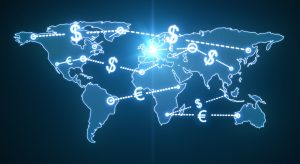 Travelling abroad is not that cheap. You will need to have more than enough savings to sustain you for your trip as well as return home.
Travelling abroad is not that cheap. You will need to have more than enough savings to sustain you for your trip as well as return home.
Keeping in mind that you will not be able to use your home currency abroad, but exchange it for the local currency.
This money exchange does not come cheap either. You will be hit with commissions, ATM fees, credit card surges and other transaction costs, in order to enjoy this privilege.
Consequently, currency exchange fee is unavoidable. The best you can do is try to minimize it while still looking for a better exchange rate for your foreign currency.
Depending on where you are, being informed about international currency exchange Ottawa, Berlin, Moscow, Beijing and even Johannesburg, can help you get a better currency conversion deal, with better rates and lower service fees. So how can you achieve this as a global traveller?
1. Do your research on the current exchange rate
Knowing the current currency exchange rate can help you get the best rate while avoiding the high currency conversion fees. So before you travel, be in tune with how the Forex market works and try to keep track of the exchange rates via modern Forex apps.
If you plan to travel for a while, you can also opt to keep track of changes in major world economies as they often affect the Forex market.
2. Use debit and credit cards
You are likely to get a good exchange rate with lower transaction fees if you withdraw your money via ATM. The rates here are usually better than exchanging money at Forex bureaus located in airports or hotels.
The best way to minimize overall ATM fees is to withdraw your cash in an in-network ATM. This is an ATM bank with some partnership with your home bank, or one, which belongs to the global ATM Alliance. The transaction fees are likely to be better with the withdrawal fees being lower or zero.
You can also withdraw loads of money once, to avoid constant ATM trips, which can be costly.
For credit cards, you can use them for large purchases whenever possible. However, take note that there would be some transaction fees levied on it for any foreign transaction.
The best way to avoid these foreign transaction fees is to apply for a credit card with no foreign transaction fees. There are plenty out there.
3. Check the rates that your bank offers
You can check the exchange rates offered by your local bank, before opting for any other means of money exchange. This is because the rates offered here are often better and even close to the Forex rates or spot rates.
You will need to plan for this transaction or service, in order for it to work in your favor. This is because some currencies are hard to find and last minute deliveries often call for an extra charge.
4. Avoid travellers cheques
Traveller’s cheques are not so common in this digital age, as there are more efficient, safe and cost-effective options of carrying money.
Besides, buying them equals to high transaction fees and bad exchange rates. Moreover, they are not very secure, when compared to credit or debit cards.
5. Do not order currency online
Ordering money online is not as bad as getting your cash via travellers cheques, in terms of currency conversion fees and bad rates. However, the rates here would not be as great as those offered by foreign ATMs and banks. Besides, you also pay for the delivery, which adds up to the total cost.
Conclusion
In conclusion, you can avoid the high currency exchange fees with the best money conversion method. This you can find with better online and physical research to these places. Otherwise, you risk a lot by just hopping for the best when it comes to currency exchange.
